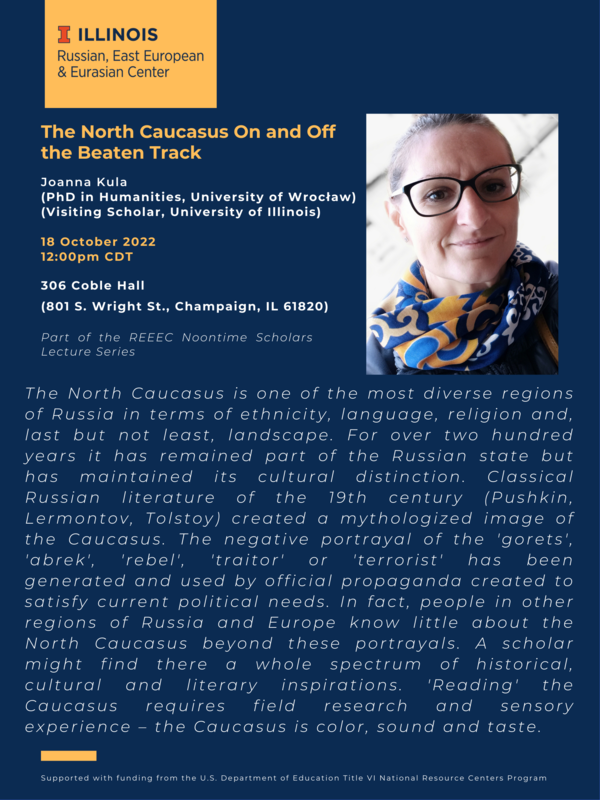REEEC Noontime Scholars Lecture: Joanna Kula, "The North Caucasus On and Off the Beaten Track"

- Sponsor
- REEEC
- Speaker
- Joanna Kula (Visiting Scholar, University of Illinois)
- Cost
- Free and open to the public.
- Contact
- REEEC
- reec@illinois.edu
- Views
- 269
The North Caucasus is one of the most diverse regions of Russia in terms of ethnicity, language, religion and, last but not least, landscape. For over two hundred years it has remained part of the Russian state but has maintained its cultural distinction. Classical Russian literature of the 19th century (Pushkin, Lermontov, Tolstoy) created a mythologized image of the Caucasus. The negative portrayal of the 'gorets', 'abrek', 'rebel', 'traitor' or 'terrorist' has been generated and used by official propaganda created to satisfy current political needs. In fact, people in other regions of Russia and Europe know little about the North Caucasus beyond these portrayals. A scholar might find there a whole spectrum of historical, cultural and literary inspirations. 'Reading' the Caucasus requires field research and sensory experience - the Caucasus is color, sound and taste.
Joanna Kula, PhD, is a scholar of Russian literature working in the Department of Slavic Studies at the University of Wroclaw (Poland). Her dissertation focused on the problem of a 'hero' in modern Russian prose (A Hero of the End of the 20th Century in Works by Vladimir Makanin, 2013). The main subject of her current research is the region of the Caucasus and its reflection in Russian literature from 19th to 21st century, both fiction and non-fiction. She studies the interaction of the two contrary ideas of geopolitics and geopoetics, colonial and postcolonial narrations, the question of Caucasian self-identity in a post-Soviet era.